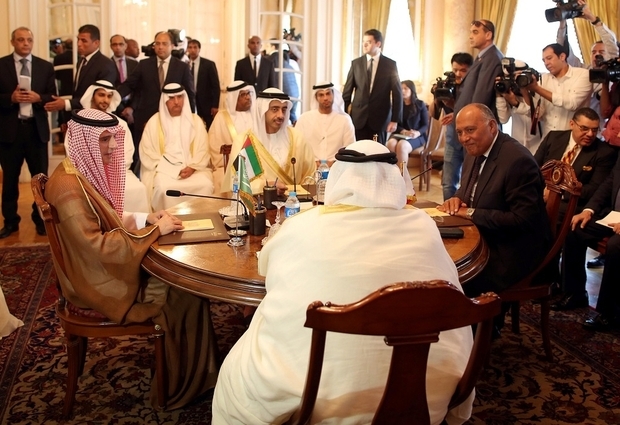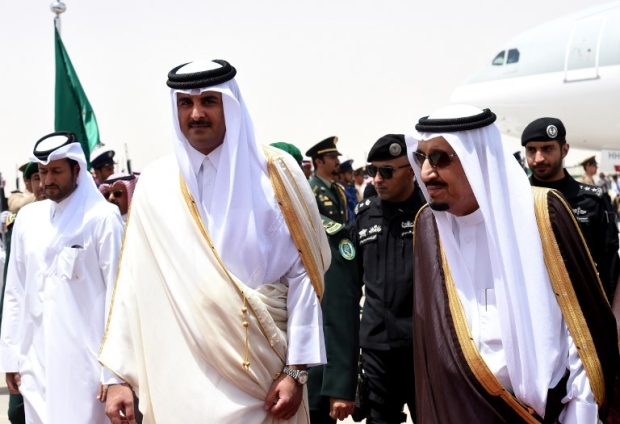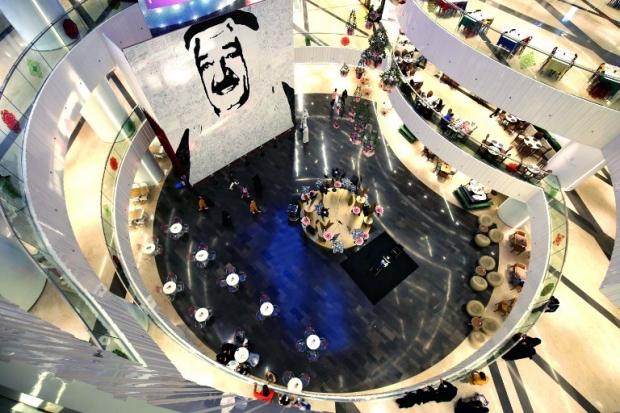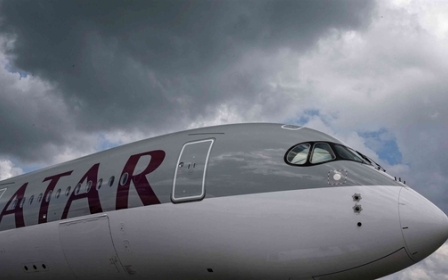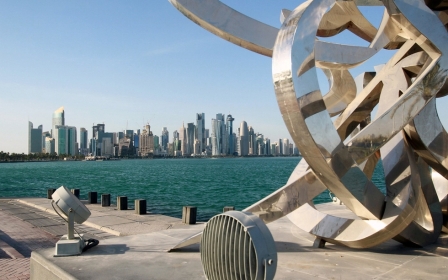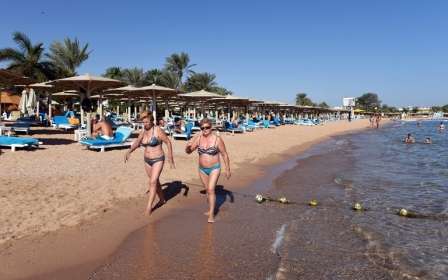First step to solve the GCC crisis? Realise sovereignty and security aren't mutually exclusive
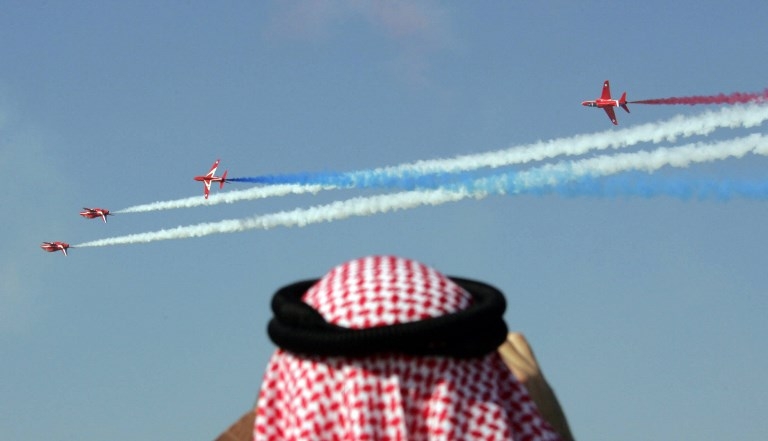
The latest crisis pitting three member states of the Gulf Cooperation Council (GCC) - Bahrain, Saudi Arabia and the UAE - alongside Egypt against Qatar has been discussed at length since it began at the start of June. In particular, Qatar’s alleged involvement in the internal affairs of neighbouring states was a primary driver of the crisis, alongside the charge that it supports terrorist organisations.
The notion that one is either with the quartet or actively against it is not helpful, once again reinforcing the notion that either Qatar’s sovereignty or regional security can be protected
While the crisis has dredged up a variety of issues – support for Iran, backing of the Muslim Brotherhood, Qatar’s involvement in Libya and Syria, the American role in the Gulf under President Trump – it has pitted the age-old debate between the sovereign rights of states and preserving states’ and regional security and stability. This is a false choice.
The anti-Qatar quartet has, essentially, in the name of preserving security and stability, sought to curtail Qatar’s sovereign right to formulate its own independent foreign policy. With the conflict framed as such, with security on one hand and sovereignty on the other, resolution becomes unlikely – it has become zero sum.
The role of the GCC itself is called into question as is the effect of this dispute in other crisis-ridden parts of the Middle East – read Libya, the Gaza Strip and the Horn of Africa for starters. Reframing the issue so that the two stances are not mutually exclusive is the primary way to ensure that a compromise can be reached and that the regional organisation can survive at least in some form.
Fewer demands, same rhetoric
In July, the quartet clarified that it required Qatari compliance with a list of 13 demands, which included closing a Turkish military base on its soil, shutting down Al Jazeera, and paying reparations for the loss of life caused by Qatari foreign policies. When Qatar failed to accede to such demands and when international opinion seemed to balk at the specificity of the demands, the quartet downgraded this requirement to Qatari commitment to six principles outlined on 20 July.
These principles are considered critical to regional security and include a commitment to combating terrorism and extremism of all forms, prohibiting acts of incitement to hatred and violence, full acceptance of the Riyadh Agreement of 2013, commitment to the outcomes of the Arab-Islamic-US summit in Riyadh in May 2017, refraining from interference in internal affairs of other states and supporting illegal groups, and accepting responsibility to confront all forms of extremism and terrorism that threaten international peace and security.
Notably, through these principles, the quartet has scaled back its demands for limited oversight of Qatar’s foreign affairs, in particular its relationship with Iran, which was heavily maligned in at the Riyadh summit in May. At the same time, however, the principles include an explicit stipulation of the protection of sovereignty, as Qatar is barred from involving itself in internal affairs of other states.
The Qataris have indicated that they want to sit and talk but only when the air, land, and sea blockade against them is lifted. It has also become clear that Qatar will respond to certain fundamental principles but make these commitments to the US and the international community, not the quartet.
In fact, in July, Qatar and the US signed an anti-terrorism agreement meant to facilitate cooperation in combating terror financing – a move which the quartet dubbed simply “not enough”. Before negotiating with the quartet, then, Qatar seems insistent on receiving assurance that (a) the human cost of the blockade is ended and (b) that these states adopt similar measures and make binding commitments to fight terrorism.
Further, despite the downgrade in demands from the quartet, rhetoric has not become more conciliatory. The Emirati ambassador to Russia has claimed that Qatar had given al-Qaeda information about Emirati troop positions in Yemen; a Saudi daily has also claimed that Qatar conspired with Iran to delay the execution of cleric Nimr al-Nimr in Saudi Arabia through negotiating the release of Qatari hunters in Iraq; the Emirati daily Gulf News also openly questioned the level and liquidity of Qatar’s financial reserves; Sky News Arabia, co-owned by an Abu Dhabi company and the UK’s Sky, released a documentary in July claiming to reveal Qatari involvement in the 9/11 attacks; and Saudi daily Okaz released a story claiming that Qatar-owned London department store Harrods was collecting credit card details from shoppers from quartet countries.
Meanwhile, in Qatar, support for Sheikh Tamim has reached a fever pitch, with some accusations that stories published by local media are downplaying the actual impact of the blockade and overstating support for Qatar abroad. In a crisis in which the role of the media, particularly of Al Jazeera, has been highlighted, media outlets throughout the Gulf have continued to foster conflict rather than diplomacy; with public discourse so combative, outlets are in no way preparing their populations for compromise.
In the public eye
The quartet’s approach to the entire crisis – its escalation into an air, land, and sea blockade, as well as legal restrictions on expressing support for Qatar in Bahrain and the UAE - differs greatly from the quiet diplomacy used to heal the GCC rift in 2014, despite the fact that they are about essentially the same issues.
In that instance, Bahrain, Saudi Arabia and the UAE withdrew their ambassadors for a period of six months over similar concerns about Qatar’s support for Islamist groups abroad and interference in internal affairs of other states. After Qatar agreed to expel seven members of the Egyptian Muslim Brotherhood and removed Egyptian Brotherhood ideologue Sheikh Yusuf al-Qaradawi’s platforms on Qatar TV and Al Jazeera Arabic, the issue appeared resolved, and indeed GCC relations improved considerably over the course of 2015.
Due to the very public nature of this crisis, the notion that one is either with the quartet or actively against it is not helpful, once again reinforcing the notion that either Qatar’s sovereignty or regional security can be protected. Indeed, Trump’s tweets about Qatar being a sponsor of terrorism fuelled the perception that countries had to pick sides.
For its part, Qatar’s leadership has maintained its stance that “collective punishment” of the blockade, as it was dubbed by Sheikh Tamim, is inappropriate and must be ended before an agreement can be reached. In his 21 July speech, Sheikh Tamim explicitly stated: “We are open to dialogue to find solutions to lingering problems, within the framework of respect for the sovereignty.”
The lines have been clearly drawn, then, between privileging the defence of Gulf security and Qatari sovereignty, even nearly three months into the blockade.
Preparing for separation
With Kuwaiti and American mediation efforts stalled, the result is likely to be a lengthy estrangement or even formal separation between the three GCC states of the quartet and Qatar. Indeed, both sides seem to be accelerating plans to live separately. Qatari officials have indicated that they will never again be vulnerable to the whims of their neighbours and will instead ensure greater self-sufficiency in such vulnerable areas as food security and commerce.
Even if a diplomatic compromise can be reached, considerable damage has been done already
A middle path towards dialogue and negotiations is desperately needed but seems nowhere on the horizon. In early June, the emir of Kuwait, Sheikh Sabah al-Sabah, who has been active in mediation attempts, expressed “bitterness” and said he was “extremely concerned” over “unprecedented developments” in the crisis, while insisting on continued Kuwaiti commitment to healing the rift.
Even if a diplomatic compromise can be reached, considerable damage has been done already – not solely of the economic or diplomatic type, but also simply in terms of the psychological impact between leaders and destruction of the trust between them. The wide involvement of Gulf national populations rallying around their leaders has also underscored a commitment to nationalism of the type that makes ending the conflict even more difficult.
In a world where control of political narrative is increasingly crucial, the quartet’s efforts to steer public opinion against Qatar by pushing the false dichotomy of security and sovereignty is dangerous and potentially represents a rupture in the GCC – ironically, an organisation meant to preserve both security and sovereignty - that may take years to heal. The first step toward doing so, however, requires recognition that sovereignty and security can coexist if regional trust is restored.
- Salman Shaikh is an expert on the Middle East and North Africa region. He is the founder and CEO of the Shaikh Group, the former director of Brookings Doha Centre in Qatar and a former UN staffer.
- Courtney Freer is a research officer at LSE’s Kuwait Programme on Development, Governance and Globalisation in the Gulf States. She recently completed her DPhil at Oxford University and previously worked as a research assistant at the Brookings Doha Centre.
The views expressed in this article belong to the author and do not necessarily reflect the editorial policy of Middle East Eye.
Photo: An Emirati man watches the British Royal Air Force Aerobatic Team the Red Arrows performing during the 2007 Dubai Air Show on 11 November 2007 (AFP)
Middle East Eye propose une couverture et une analyse indépendantes et incomparables du Moyen-Orient, de l’Afrique du Nord et d’autres régions du monde. Pour en savoir plus sur la reprise de ce contenu et les frais qui s’appliquent, veuillez remplir ce formulaire [en anglais]. Pour en savoir plus sur MEE, cliquez ici [en anglais].



